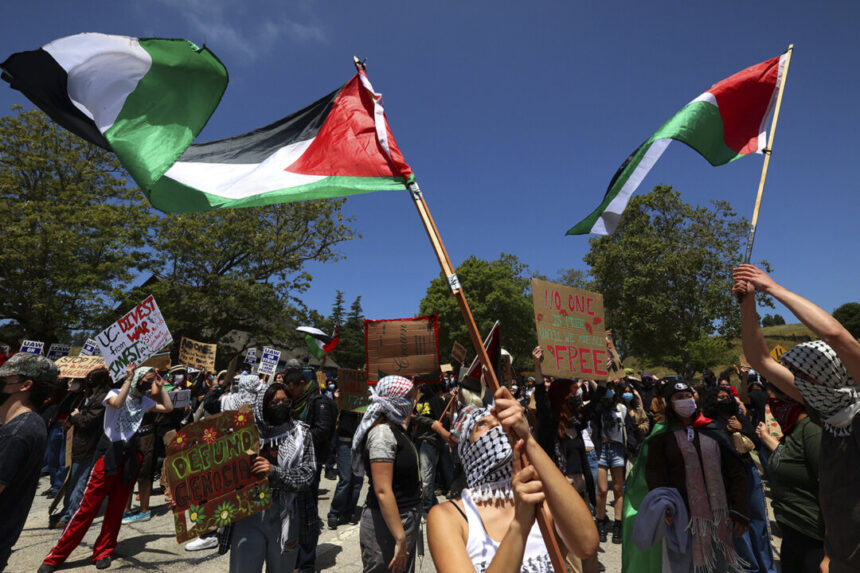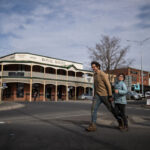On May 31, police in riot gear surrounded protesters at the University of California–Santa Cruz to remove an encampment and barricades where pro-Palestinian demonstrations had been blocking the main entrance to the campus. Dozens were arrested during the operation, according to university officials.
Law enforcement officers from various levels swarmed the protesters, instructing them to disperse and dismantling part of the barricade. Some physical altercations between police and protesters were observed, leading to the arrest of several individuals.
University spokesperson Scott Hernandez-Jason stated that the encampment participants had been repeatedly warned to cease their unlawful actions of blocking campus resources and access. Despite multiple directives to disperse, many protesters refused to comply, resulting in the arrests.
Approximately 80 demonstrators were taken into custody, with some still present at the entrance, as confirmed by university spokesperson Abby Butler. The university administration emphasized that the blockades and disruptions posed safety hazards and hindered emergency vehicle access.
Graduate student workers at UC Santa Cruz continued their strike against the university system’s treatment of pro-Palestinian protesters, with plans to expand the strike to three more campuses the following week. The ongoing demonstrations at various universities across the U.S. and Europe aim to challenge business ties with Israel and advocate for an end to the conflict in Gaza.
The confrontations at UC Santa Cruz came amidst a series of campus protests nationwide, with arrests recorded at several institutions. The incidents reflect a growing trend of student activism against perceived injustices and human rights violations.
At MIT in Cambridge, a group of graduates staged a walkout during a commencement ceremony, expressing solidarity with Palestine and criticizing the university’s research collaborations with the Israeli government. The protests at MIT and other campuses underscore the deepening divisions and tensions surrounding the Israeli-Palestinian conflict.
Please rewrite this sentence.
Source link






